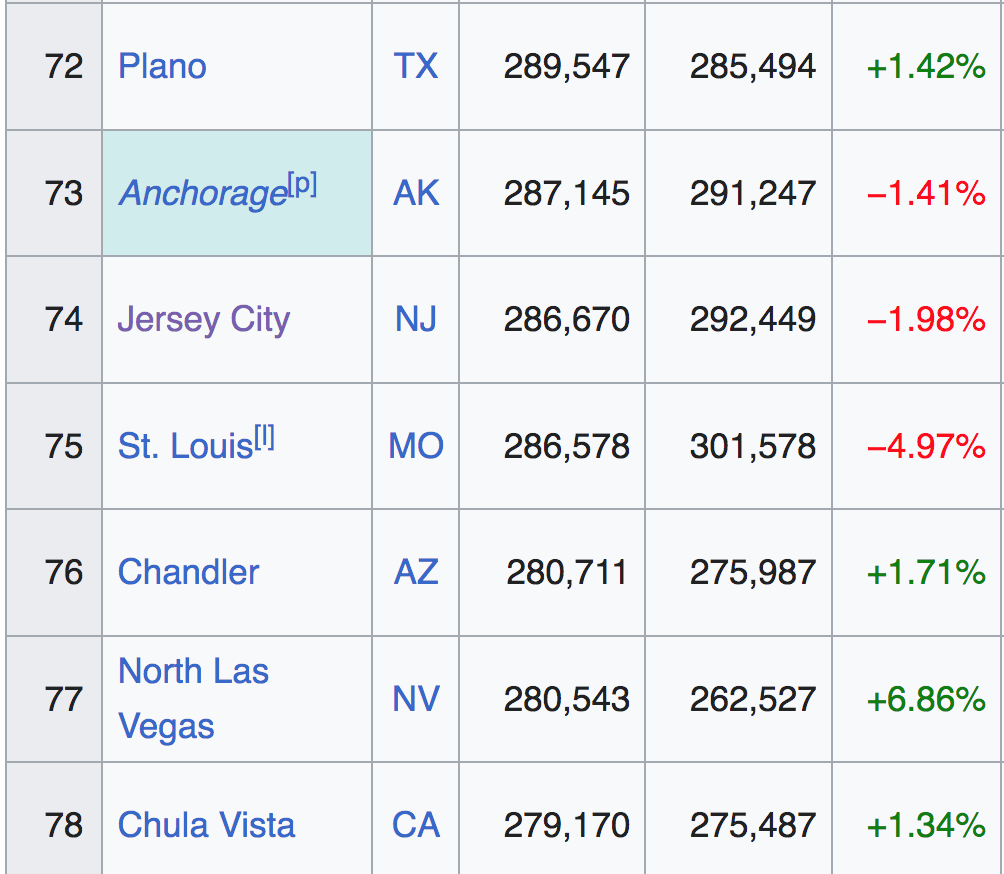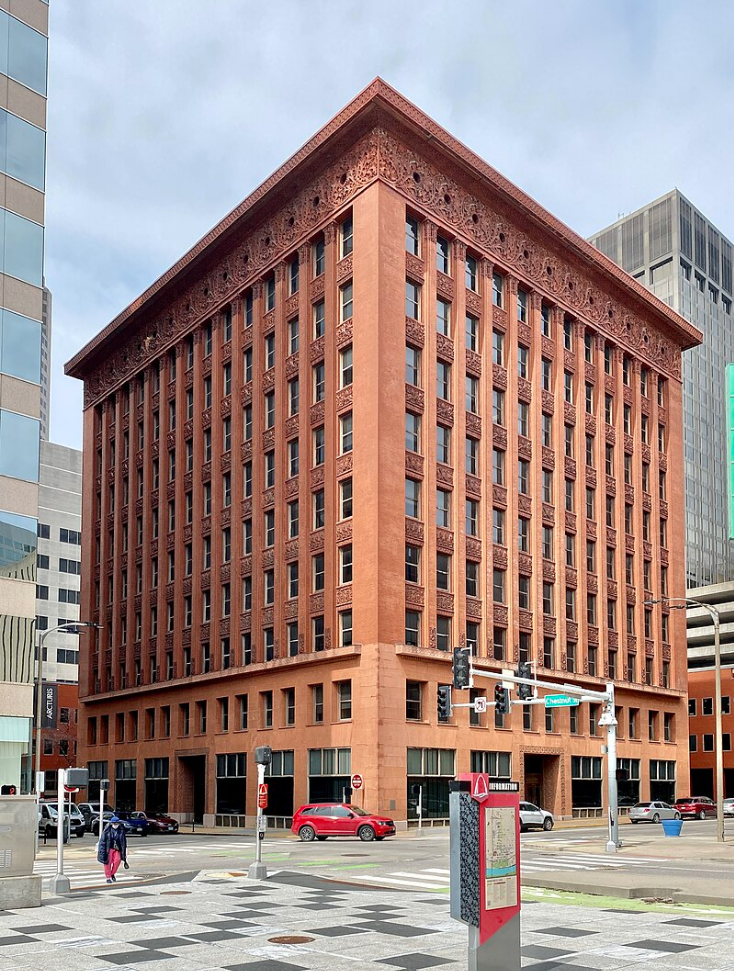I don’t wanna be “rich”
Eventually, I’ll get to price indices. But first, a long boring digression on why I don’t want to be “rich” (but do want to have a billion dollars.)
I recently read a WSJ story about how a $200 million St. Louis skyscraper had sold for only $4 million. That got me wondering what house prices looked like in that area. Through the miracle of Zillow, all of our curiosity can be satisfied at the push of a button.
On the north side of town, houses sell for less than $50,000. The most expensive homes I could find were in the fashionable area near Forest Park, Washington University, and major hospitals. One Florentine palace has an interior that looks like the sort of place that Queen Elizabeth might have inhabited. The asking price is just under $2 million, and it contains 12,847 sq. feet (or roughly 1200 sq. meters for you foreigners.)
You can see this sort of house in old black and white films from the 1930s. The owner is a balding fat guy with a cigar and top hat. Probably a banker. When I was young, this was my vision of being really, really rich.
And then it hit me—I could afford this house.
[No, I don’t have the sort of income required to buy this house, nor did I before I retired. Rather I bought a normal house in Boston in 1991, saw it rise rapidly in value during the Boston boom, and then switched to a roughly equal Orange County house in 2016, which proceeded to rise in value far faster than houses back in Boston over the past 8 years. I’ve been very lucky.]
Thus I could live in a fabulous mansion similar to those I grew up watching in the movies. OK, I would not have servants, but they make me uncomfortable. I hate luxury hotels where they stop by once an hour and ask if you need anything. Just leave me alone!
But I have decided not to buy this mansion. Unlike when I was young, the thought of living there now seems kind of depressing. And I’d go even further. While I would not turn down Versailles if the French government offered to give me that monstrosity, I’d honestly rather live in a 3500 sq. foot mid-century modern house on a hill in Laguna Beach overlooking the Pacific—which unlike the St Louis mansion, is a home that I definitely cannot afford. I’d even prefer a 4000 sq. foot Tuscan style home with a half acre perched on a hill in Turtle Rock, Irvine, also unaffordable.
In other words, I have no interest in being rich, as the term “rich” was defined 100 years ago. But I do want lots of money. As Danny DeVito once said:
Everyone needs money, that’s why they call it money.
[An illustration of why David Mamet is our greatest screenwriter.]
I suspect that most people don’t want to be rich in the sense of what being rich meant back in 1910; rather they want to have lots of money so that they get to choose how to be rich today.
In that case, what are we actually trying to measure with price indices? Does revealed preference suggest that I’m richer than that fat cat banker from the 1920s? He would not think so. And think about archaic phrases like “fat cats” and “jet setters”. These are people rich enough to get fat and fly on airplanes. A group we now call “working class”.
Part 2: An Elegy for the Midwest
I found my Zillow exploration of St Louis to be a bit depressing. Back in 1900, this was America’s 4th largest city. Now it’s number 75:

St Louis had a spectacular World’s Fair back in 1904, in Forest Park. It’s also depressing that world’s fairs are no longer interesting. “Stuff” no longer matters, only “information”. When was the last time you were excited to see the new models at an auto show?
The WSJ article suggests that the downtown is nearly dead, but there are some gentrifying neighborhoods just west of downtown. Zillow shows that they’ve converted a number of grand old office buildings from the golden age of commercial architecture (1890-1940) to loft style residential units that sell at prices far below what you’d pay in New York, or even in Chicago. That’s good.
But look more closely and you’ll see that the interior design is a bit amateurish. This is a depressing reminder that the Midwest is losing a lot of its talent to the two coasts (and Texas.) When I was born in 1955, the upper midwest was America’s richest region. More importantly, talent was distributed fairly evenly from the northeast through the midwest to the west coast. (Perhaps the South was a bit behind.) Now the industrial Midwest is slowly emptying out.
The people who design modern condos in New York or the Bay Area would look down their noses at the design quality of the loft condos in these up and coming St Louis neighborhoods. Unlike in 1955, it now almost feels like these regions are part of two different countries. But 100 years ago, America’s best architecture was being produced by the “Chicago School”.
PS. My fondest memory of St Louis is seeing Sullivan’s magnificent Wainwright building. Not the first skyscraper, but probably the first beautiful skyscraper:

Tags:


24. April 2024 at 17:08
I prefer population by Metropolitan Statistical Area over population by city, though I’m not sure how far back estimates go for MSAs.
24. April 2024 at 18:04
So I saw a video of Swiss police strictly enforcing the law.
Could that level of law enforcement make St Louis popular again?https://youtu.be/eMNhRlTX5JY?si=AuOMMPkqRR2YnXeb
25. April 2024 at 07:20
Floccina, Excellent!
25. April 2024 at 07:45
Good article in the recent Economist on population changes across the U.S.–the picture they paint of the Midwest is as depressing as what you’ve commented on this post. Curiously, the larger metro area of St. Louis has experienced modest growth in the past few decades–which is consistent with some of the trends that mid-sized cities have experienced in the last 80 years. St. Louis doesn’t seem to have the agglomeration power of places like Boston or Pittsburgh. It’s a rough fate. I favor more immigrants who could move right into some these ready-built urban areas.
25. April 2024 at 11:16
Would you have made more money investing in stocks rather than a house?
25. April 2024 at 12:40
David, I agree.
Tsergo, The mistake was not in buying the house, it was in paying off the mortgage.
29. April 2024 at 06:14
Interesting theory on decline of midwest cities using St. Louis as an example:
https://washingtonmonthly.com/2016/03/14/the-real-reason-middle-america-should-be-angry/
Ladue and Frontenac are where the rich people live, but those are outside the city itself. The city/county divide has doomed the St. Louis region over the last 60+ years.
29. April 2024 at 06:49
Jeff, Interesting article, but I don’t buy the claim that changing antitrust enforcement led to the decline of St. Louis. The same problems hit Detroit, Cleveland, Buffalo and lots of other rust belt cities.